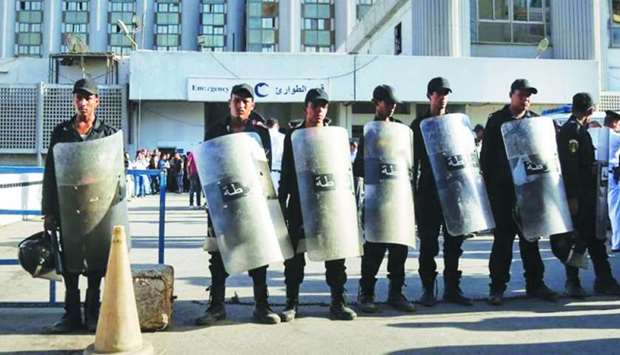"Human Rights Watch believes that the torture epidemic in Egypt likely constitutes a crime against humanity," the group said in the 63-page report, urging the government and the United Nations (UN) to prosecute in their courts Egyptian security officers and other officials accused of committing torture.
The New York-based rights group said security services in the North African country have used torture as a "systematic practice" against suspected opponents of the government. It also said torture by the security services and the lack of punishment for this practice has spread since President Abdel Fattah el-Sisi was elected in 2014.
Nineteen former detainees and the family of another detainee, who were tortured between 2014 and 2016, were interviewed for the report. Their statements reflected how "police and officers of the National Security Agency regularly use torture during their investigations to force perceived dissidents to confess or divulge information, or to punish them".
The former detainees detailed the methods of torture, including electrocution. Police also handcuffed suspects and suspended them by their arms.
In another "position, called the 'chicken' or 'grill', officers placed a stick or bar behind the suspects' knees, wrapped their arms around the bar from the other side so that the bar laid between the crook of their elbows and the back of their knees, and tied their hands together above their shins to secure them in the position," the report said.
The bar was then lifted, placing the suspects in a position "resembling a chicken on a rotisserie spit".
The report also quoted a former detainee alleging police "repeatedly raped" him with a stick.
In most cases, officers stopped using torture once they obtained confessions or the names of suspects' friends and acquaintances, according to the HRW report.
In July 2013, the army, then led by Sisi, deposed former President Mohamed Morsi, a leader of the Muslim Brotherhood group. Since then, thousands of Muslim Brotherhood group members and sympathisers, as well as activists who opposed Sisi, have been subjected to detention and trial.
Rights groups have regularly accused Egyptian security services of practising torture and making arbitrary arrests, something the interior ministry has denied.
The government has acknowledged there have been "individual" cases of torture, and several policemen have been tried and sentenced for violent deaths in detention in recent years.
In its report, HRW recommended that Sisi task the justice ministry with appointing a special prosecutor to investigate complaints of abuse and prosecute them.
"Failing a serious effort by the Sisi administration to confront the torture epidemic, we urge UN member states to investigate and, if appropriate, prosecute in their own courts Egyptian security officers and other officials accused of committing torture or allowing it to occur, under the principle of universal jurisdiction," the report said.

State security is accused of of using torture for extracting confessions. (File picture/Mohamed El-Raai/AFP)
Egypt has failed to meet basic rules of international human rights law as widespread arbitrary arrests, enforced disappearances and torture against dissidents have become common since 2013, Human Rights Watch (HRW) has said in a new report.
